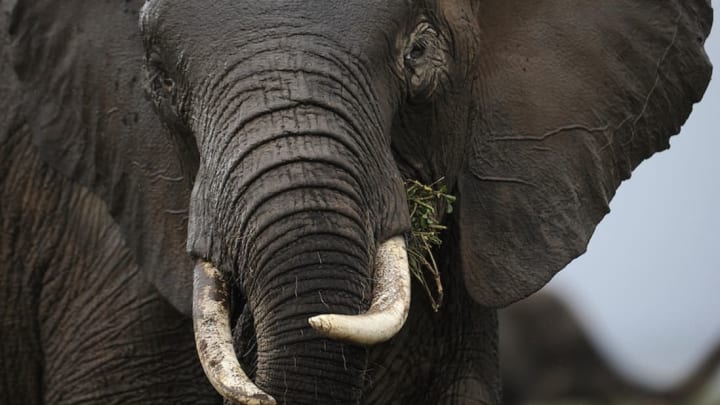The old adage “an elephant never forgets” might be a bit of an exaggeration, but something that an elephant is actually unlikely to do is to die of cancer. According to an estimate by pediatric oncologist Joshua Schiffman of the University of Utah, less than 5 percent of elephants will die of cancer—a significantly lower percentage than the 11 to 25 percent of humans who will succumb to the disease. And it all has to do with the pachyderms' genes. Two newly published studies by different teams of researchers found that elephants have multiple copies of the tumor protein 53 gene (TP53), which regulates cell division and may be saving the large mammals from deadly cancers.
The first study, published by Schiffman and colleagues in the Journal of the American Medical Association, examined necropsy data from 36 mammalian species of all sizes, from the rock hyrax to Asian and African elephants. The researchers found that cancer mortality did not increase with body size or maximum life span, and that while humans have one copy of the tumor suppressor TP53 gene, African elephants have at least 20.
The team also subjected white blood cells from the elephants to treatments that damage DNA; such damage is a cancer trigger. The cells reacted to the damage with a "characteristic p53-mediated response": they killed themselves, a process of programmed cell death called apoptosis.
"It's as if the elephants said, 'It's so important that we don't get cancer, we're going to kill this cell and start over fresh," Schiffman said in a press statement. "If you kill the damaged cell, it's gone, and it can't turn into cancer. This may be more effective of an approach to cancer prevention than trying to stop a mutated cell from dividing and not being able to completely repair itself."
He added: "We think that making more p53 is nature's way of keeping this species alive."
Researchers conducting the second study, which was published in bioRxiv, came to the same conclusion about elephants and the TP53 gene. They also suggest that “an increase in the copy number of TP53 may have played a direct role in the evolution of very large body sizes and the resolution of Peto's paradox in Proboscideans.” Proboscidea is a taxonomic order of mammals that includes elephants, and Peto’s paradox, which is mentioned in both studies, is the observation by epidemiologist Richard Peto that cancer risk is not directly correlated to the number of cells in a body.
Schiffman told New Scientist that the results of the study could hold promise for the future of cancer prevention and treatment in humans. “Evolution has had 55 million years to figure out how to avoid cancer," he said. "Now I think it’s up to us to take a page out of nature’s playbook and learn how to take this information and apply it to those who need it most.”
